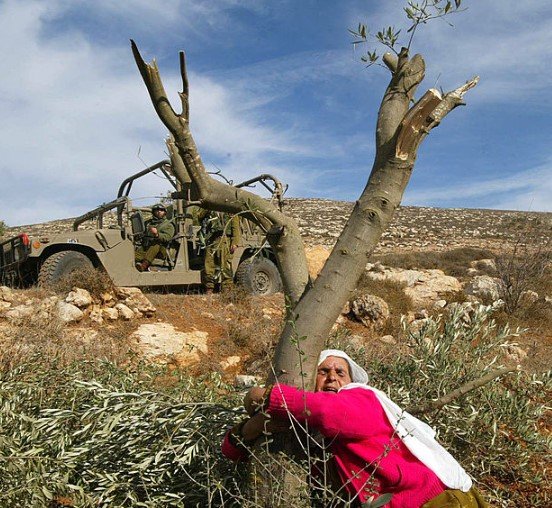Israeli authorities deported 32 foreign activists on October 22, 2025, after they assisted Palestinian farmers with the olive harvest in the occupied West Bank village of Burin near Nablus. The deportation notice charged them with breaking a military commander’s order and linking to the Union of Agricultural Work Committees, a group Israel labels as a terror organization.
Background on the Deportations
The activists came from countries including Britain, the United States, Italy, and others. They aimed to protect Palestinian farmers from rising violence during the olive season, which started in early October 2025. Officials arrested them in an olive grove declared a closed military zone by the Israeli Defense Forces.
Justice Minister Yariv Levin approved the deportations following complaints from local leaders who called the activists provocators. Some activists faced bans from Israel for up to 99 years. One British activist, Rudy Schulkind, described his 72-hour detention before expulsion, saying the military zone tactic often targets Palestinian land access.
Reports show this fits a pattern of restrictions on international volunteers in the West Bank. Activists provide a buffer against attacks, but Israel views some groups as threats.

Surge in Settler Violence During Harvest
The 2025 olive harvest has seen a sharp increase in attacks by Israeli settlers on Palestinian farmers. The United Nations human rights office reported over 150 incidents since the season began, including beatings, vandalism, and crop destruction.
In one case near Ramallah, masked settlers beat a Palestinian woman with a rod while she picked olives, causing severe injuries. Another attack injured a foreign volunteer. These events highlight the dangers farmers face without outside help.
Palestinian officials say settlers act with support from security forces, leading to little accountability. The olive harvest is vital for many families, providing income and cultural ties.
Farmers in areas like Burin and Turmus Ayya report stolen equipment and burned trees. International observers note that violence peaks during harvest time each year.
Reasons Behind Israel’s Actions
Israel defends the deportations by pointing to security concerns. The Union of Agricultural Work Committees faces accusations of ties to militant groups, though the organization denies this and focuses on farming aid.
Activists argue the moves aim to limit oversight of settler actions. Human rights groups say declaring areas military zones prevents harvesting on private Palestinian land.
This year, attacks reached new highs, with 158 reported against olive pickers. The UN warns of impunity fueling the cycle.
- Key factors in deportations: Violation of military orders in restricted zones.
- Alleged group ties: Connection to a designated terror organization.
- Broader context: Efforts to curb foreign involvement in West Bank disputes.
Impact on Palestinian Farmers
The loss of activist support leaves farmers more vulnerable. Olives make up a big part of the West Bank economy, with millions of trees harvested annually. Violence has cut yields by up to 30 percent in some villages this season.
Families in affected areas struggle with lost income and fear of attacks. One farmer from Burin said without volunteers, settlers chase them off their own land.
International aid groups call for better protection. The deportations may discourage future volunteers, worsening the situation.
| Incident Type | Number Reported (October 2025) | Locations Affected |
|---|---|---|
| Physical Attacks | 65 | Burin, Turmus Ayya, Ramallah |
| Crop Vandalism | 50 | Nablus area villages |
| Equipment Theft | 43 | Various West Bank spots |
This table shows the breakdown of attacks based on recent monitoring.
Global Reactions and Ongoing Concerns
World leaders and rights organizations condemned the violence and deportations. The UN urged Israel to ensure safe access for farmers. Social media buzzed with stories from expelled activists, sparking debates on solidarity efforts.
Posts on platforms like X highlighted personal accounts of arrests and bans. Some users praised the activists’ bravery, while others backed Israel’s security measures.
The issue ties into larger West Bank tensions, including recent bills to annex parts of the territory. Experts predict more clashes as the harvest continues through November.
What Happens Next
Authorities may target more volunteers, with reports of visa denials for aid workers. Palestinian groups plan to document incidents and seek international help.
The situation underscores the need for dialogue on land rights and security. As winter approaches, farmers hope for a peaceful end to the season.
Share this article if it informed you about the West Bank olive harvest challenges. Comment below with your thoughts on how to address settler violence and support for farmers.
